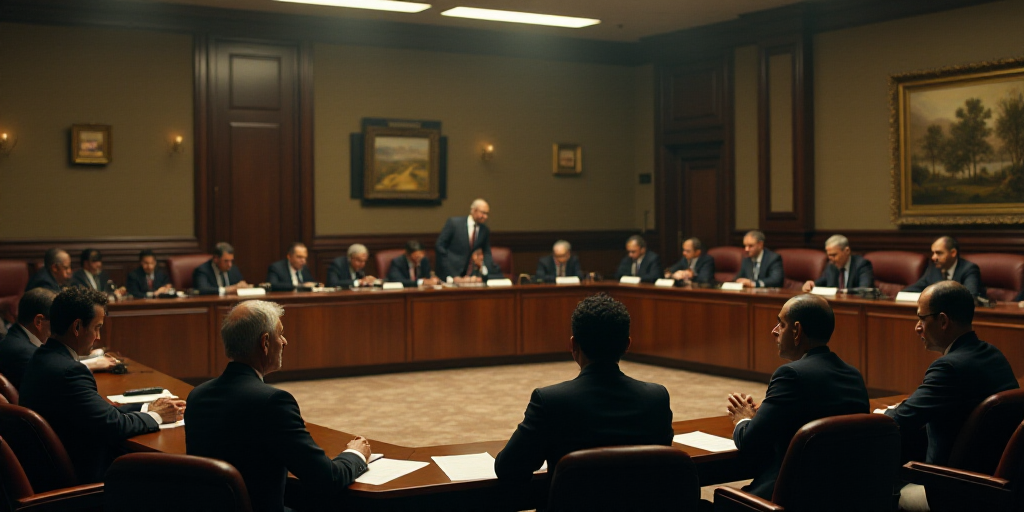Introduction
The Supreme Court of Justice of the Nation (SCJN) in Mexico, recently elected through popular vote on June 1, 2025, held its first public session on September 11. Among the 15 cases discussed that day, none involved private sector matters; only three were actions of unconstitutionality. Here, we explore four significant pending cases affecting the private sector: Elektra, Banca Mifel, Total Play, and Transportadora de Gas Natural de la Huasteca.
Banca Mifel
Case Background:
Scheduled for discussion in the upcoming session on September 17, case number 21/2025 is listed. It involves an incident of non-execution of a sentence issued on January 19, 2024, by the Tenth Administrative District Court in Mexico City regarding indirect amparo 684/2023. Banca Mifel, Grupo Financiero Mifel, as fiduciary of fideicomiso number 1644-2013, initiated this amparo and protection of justice against:
- The Head of Government of Mexico City regarding the issuance of the Interior Regulation of the Executive Power and Public Administration of Mexico City, published in the Official Gazette of Mexico City on January 2, 2019.
- Specifically, Article 156, fractions XVI, XXIX, and XXX.
- The Director of the Plans and Programs Registry of the Urban Development and Housing Secretary of Mexico City.
Banca Mifel seeks the issuance of a Unique Land Use Zoning Certificate (Certificado Único de Zonificación de Uso de Suelo) with folder number 32720-151PARI22, dated February 10, 2023, for a plot located at Paseo de los Laureles number 278, Bosques de las Lomas Colony, Cuajimalpa de Morelos, Mexico City.
The Tribunal of Administrative Justice of Mexico City recognized Seduvi’s (Urban Development and Housing Secretary) claim of lesiveness in 2019, as the plot is exclusively zoned for single-family residential use of one home per 1,000 square meters. The plot, known as La Colina, faces Bosques de Laureles and does not match the illegal certificate’s zoning.
Transportadora de Gas Natural de la Huasteca
Case Background:
For the September 18 session, case number 5 is a conflict of criteria identified as 153/2023, assigned to Minister Lenia Batres Guadarrama’s ponencia. It involves Transportadora de Gas Natural de la Huasteca.
The case background details that on May 31, 2023, the Second Collegiate Tribunal in Civil Matters of the Second Circuit sent an letter (oficio number 884/2023) to the Presiding Magistrate José Antonio Rodríguez Rodríguez, informing him of a denunciation by Israel Herrera Rangel, legal representative of Transportadora de Gas Natural de la Huasteca, Sociedad de Responsabilidad Limitada de Capital Variable. The denunciation highlights a possible contradiction between:
- The criterion expressed by the First Sala of SCJN in tesis 1a./J. 14/2012 (9a.)
- The sustained criterion by the Second Sala of the same SCJN in jurisprudence 2a./J. 85/2017 (10a).
The court must determine if Article 75 of the regulation of the relevant law, setting a time limit for exercising the right of judicial validation of a voluntary servitude pass-through contract, violates the constitutional principle of law reserve established in Article 17.
Elektra
Case Background:
Although the specific cases for post-September 18 ordinary case lists remain unknown, other relevant private sector matters have been assigned to ministers’ ponencias.
One such case is the direct amparo under review 3842/2024, with Elektra as the appellant and the Secretary of Finance as the respondent. Elektra, previously taxed under consolidated fiscal regime as a controlled entity, filed an administrative controversy lawsuit against the resolution confirming a fiscal credit (penalty) for declaring a larger fiscal loss than actually suffered, as the company omitted reporting accruable income from inventory.
The Sala Regional Metropolitana of the Federal Court of Administrative Justice recognized the validity of the impugned resolutions. Elektra, dissatisfied with this decision, filed a direct amparo lawsuit, claiming, among other things, that fiscal inspection powers should be exercised against the controlling entity rather than the controlled one, as per the Income Tax Law in effect during the 2012 fiscal year.
The Colegiado Tribunal granted the amparo and justice protection to the union, considering that fiscal authorities should exercise inspection powers against controlling entities since they are the sole cause of consolidated results.
Unhappy with this decision, the fiscal authority filed a review resource, arguing that the tribunal’s interpretation of various articles in the Income Tax Law (2012 version) is unconstitutional.
Total Play
Case Background:
Another interesting case is the direct amparo under review 2526/2025, with Total Play as the appellant and the Administrator of Large Taxpayers’ Controversy “1” of the General Administration of Large Taxpayers of the Tax Administration Service as a third party.
This is a nullity lawsuit against the rejection of deductions for distributor commissions in the 2011 fiscal year. This case was also assigned to Minister Lenia Batres’ ponencia.
Puma
Case Background:
Puma México Sport appears as the appellant in amparo 313/2025, challenging the promulgation of a decree reforming provisions of the Federal Rights Law published on November 13, 2025.
Puma México Sport opposes the application of a fixed quota solely to import operations from treaty integral and progressive transpacific association member countries, contrary to the principles of proportionality, legality, and normative hierarchy established in international agreements like the Agreement on Trade Facilitation and the General Agreement on Tariffs and Trade.






